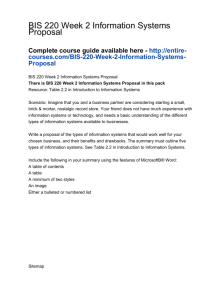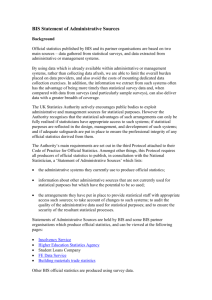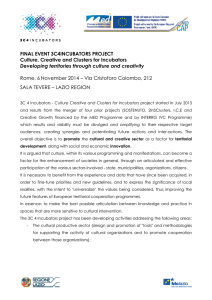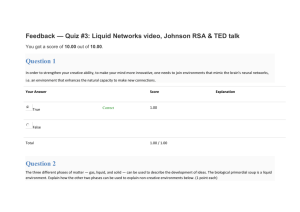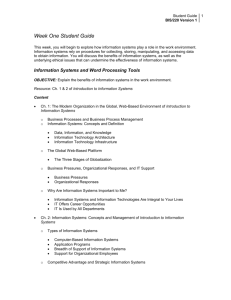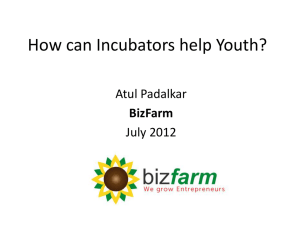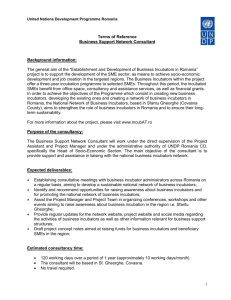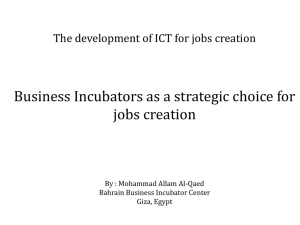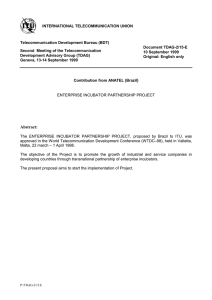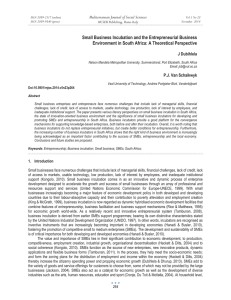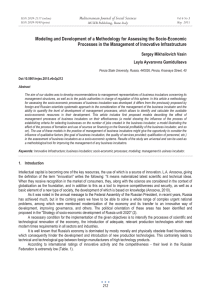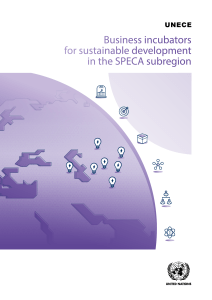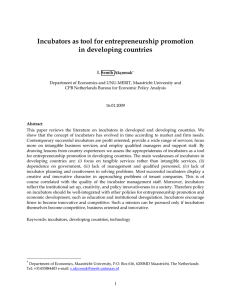Support facilities for high-tech start-ups: What is the role of business
advertisement
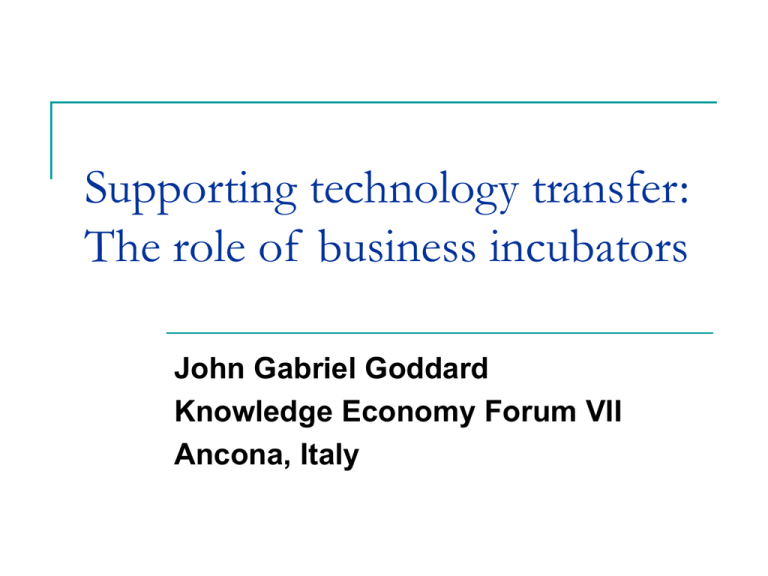
Supporting technology transfer: The role of business incubators John Gabriel Goddard Knowledge Economy Forum VII Ancona, Italy Issue #1: Speed of adoption of “new technologies” Penetration of recent technologies Global Economic Prospects (2008) Issue #2: Level of absorptive capacity Technology absorptive capacity Global Economic Prospects (2008) A us N ew G tra r l U ni C Ze ee ia te an a ce d a la K da nd in ( g 3 Podo ) la m J a nd Sl pa ov S ak pa n R I in ep ta Ic ubl ly H ela ic un n Fr ga d Po an ry rt ce C ug ze K al ch o r R Irel ea e Lu G pu and xe ermbli N m et b anc he o y rla urg N n D or ds en w a A ma y B us rk el tr Swgiu ia m Fi e de nl n an d Issue #3: Science-Industry links % 60 Firms collaborating in innovation with higher education institutions OECD Scoreboard (2007) 50 SMEs Large firms 40 30 20 10 0 Issue #4: Entrepreneurial culture Total Entrepreneurial Activity (TEA Global Entrepreneurship Monitor (2002) Rapid growth of European Business Incubation (BI) facilities 50% of incubators began to operate in the last 5 years Upwards of 5,500 people work in EU incubators Around 24,000 firms receive services Survey of European Business Incubators (2006) Survey of European Business Incubators (2006) 936 BI managers contacted in the EU-25 BI definition = on-site rental space and business support Focus of the survey was BI characteristics, start-up risks and financing gaps 170 responses received, a response rate of 18%, with 10%+ in all countries Carried out at Paris Dauphine University with funding from an EC research grant Non-profit BIs supported by public/ mixed funding are most common Figures highlight the: Widespread use of incubators in entrepreneurial and innovation policy Weak interest of the private sector in this service model due to risks and lags of business creation Innovation and technology transfer are central to European BIs The popularity of technology BIs points to the perceived usefulness of this model for fostering technology transfer; and availability of EU funds BIs are active in software, digital media and biotech industries Yet, major risks facing start-ups are commercial Business incubation: a public solution to accelerate technology transfer Business incubators are a leading instrument used by European governments to facilitate technology transfer from public research organizations Commercial risks pose a greater problem than technical risks when taking R&D results to market, not least because spin-offs are often founded by scientists with technical capacities but without business skills BI managers need strong business background Effective screening at entry and mentoring require business experience, preferably in related products markets Specialized technical/IPR advice can be provided by external experts Even so, “rules of the game” will frame the BI manager/tenant incentives Pressure to deliver quick results can distort the incentives of BI managers Possible bias to select companies with high potential but no real need for BI services Start-ups may delay exit to benefit from subsidized rents/services Rules of the game need to be made compatible with overall BI strategy and reduce these incentive problems Tailored financial services critical to manage start-up and scale-up costs And also: •Syndicated capital from third party investors •Agreements with local banks to test new forms of financing Concessional support/grants can be useful at the initial phase BIs as part of a public (or PPP) platform for technology transfer Can BIs be planned as stand-alone entities? Need for proximity to deal-flow from research organizations and economic poles Fostering linkages and cooperation with the National/ Regional Innovation System? Merging the functions of BIs and other instruments (e.g. S&T parks, Technology Transfer Offices, VC funds)? Capacities, networks and goals are different Instruments needed at different stages Thank you! John Gabriel Goddard Email: jgoddard@worldbank.org Tel: +1 202-631-8158
